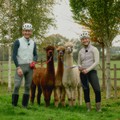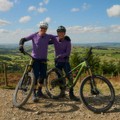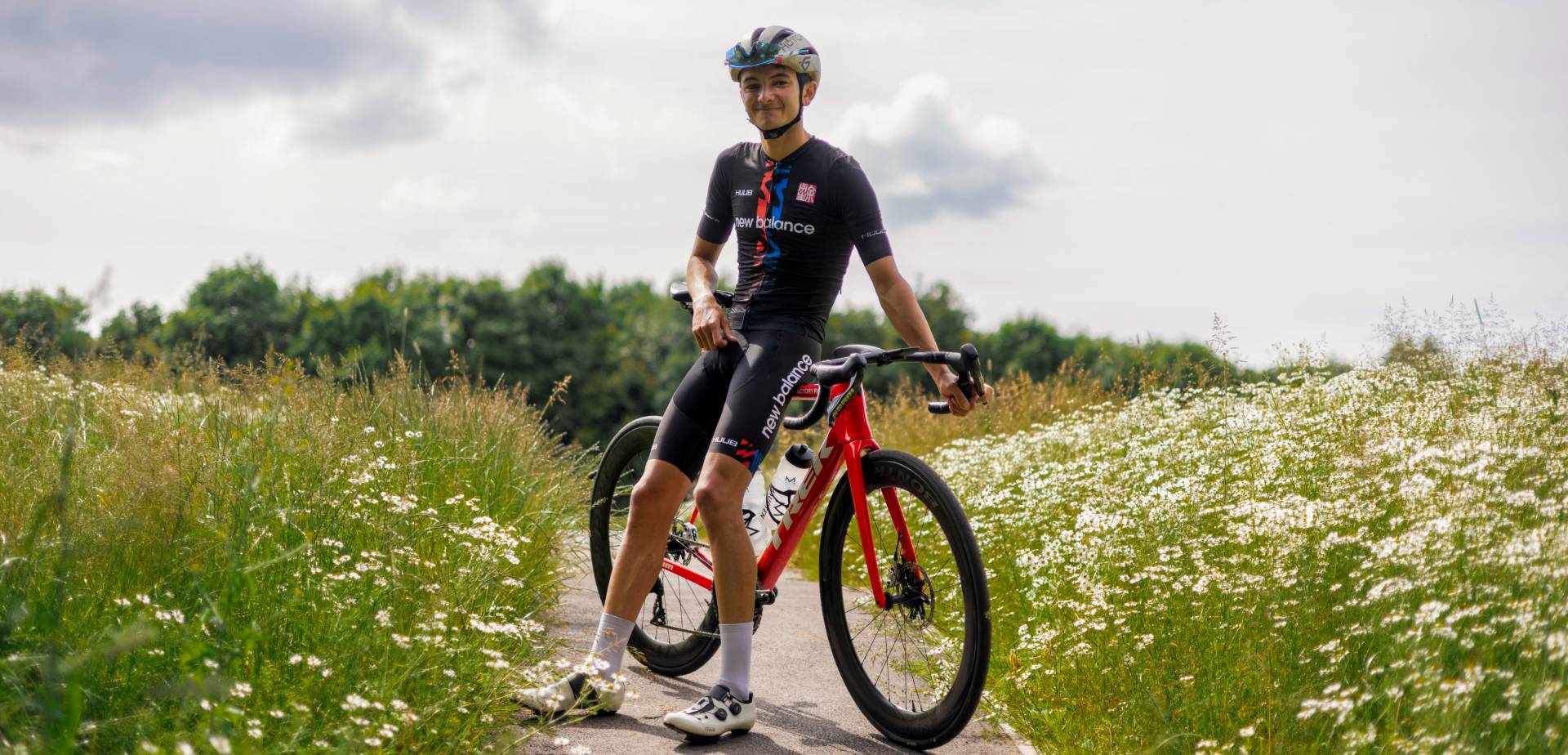
A Conversation with Olympic Champion Alex Yee
Following his stunning gold medal victory in Paris, triathlete Alex Yee is looking towards his next challenge, but it might not be what you expect. Despite being at the pinnacle of his sport, Yee remains remarkably grounded, a fact evidenced by his recent post-race trip back from Valencia via a Ryanair flight. "You see all kinds of people on there," he laughs. "Tyson Fury, Luke Littler... it's got to be done!"
We caught up with the Olympic champion on the Matt Stephens Unplugged podcast to discuss his incredible victory, his surprising plans for the London Marathon, and the meticulous science behind his training.
Images kindly provided by COROS
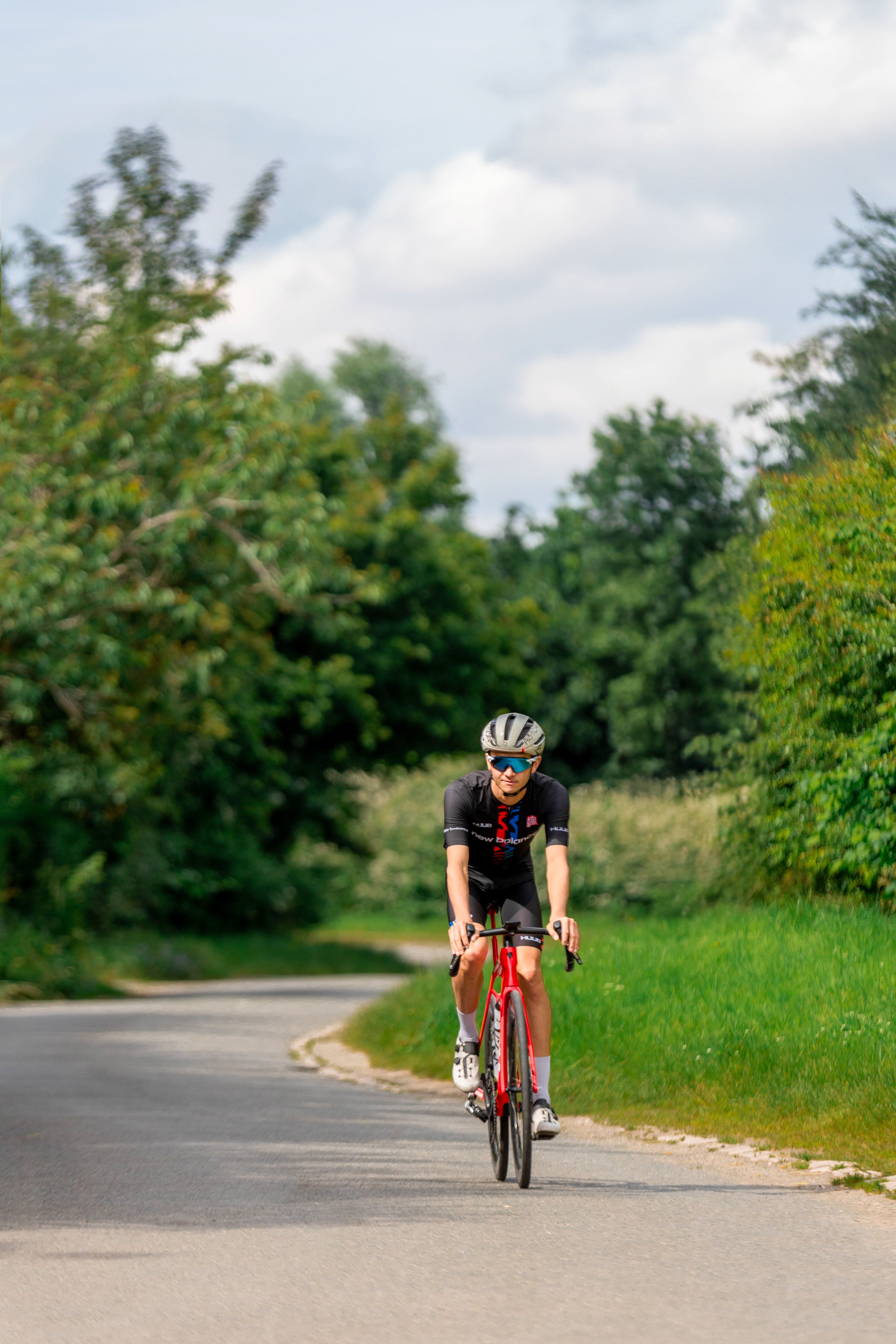

Matt Stephens: Alex, welcome. You’re just back from a 10k in Valencia. What’s the plan behind focusing on pure running events right now, and how does that fit into the next Olympic cycle?
Alex Yee: Coming off a successful year, the whole purpose of this year is about improving. One of the things I haven't been able to work on for a long time is my run, because I've been working so hard on cycling and swimming to be competitive enough to use my weapon, which is my run. So, this year is about doing more run racing to influence my run physiology. That means racing some fast 10ks, half marathons, and eventually, the London Marathon, which has always been a dream.
Matt: The London Marathon is a huge undertaking. You're known for your explosive 10k finish, but the marathon is a different beast. What are your goals?
Alex Yee: It’s an exciting project because I could fail, and it might not go to plan, but that’s a good thing. There'll be a huge amount of learning either way. It’s all about moving at my threshold speeds. If I can improve my endurance, it will benefit my triathlon performance. I have an idea of what I want to run; I think sub-two hours ten minutes (<2:10:00) would be something I'd be satisfied with. But it’s my first one, so if I complete it, it will be my fastest! That sets a benchmark for the future.
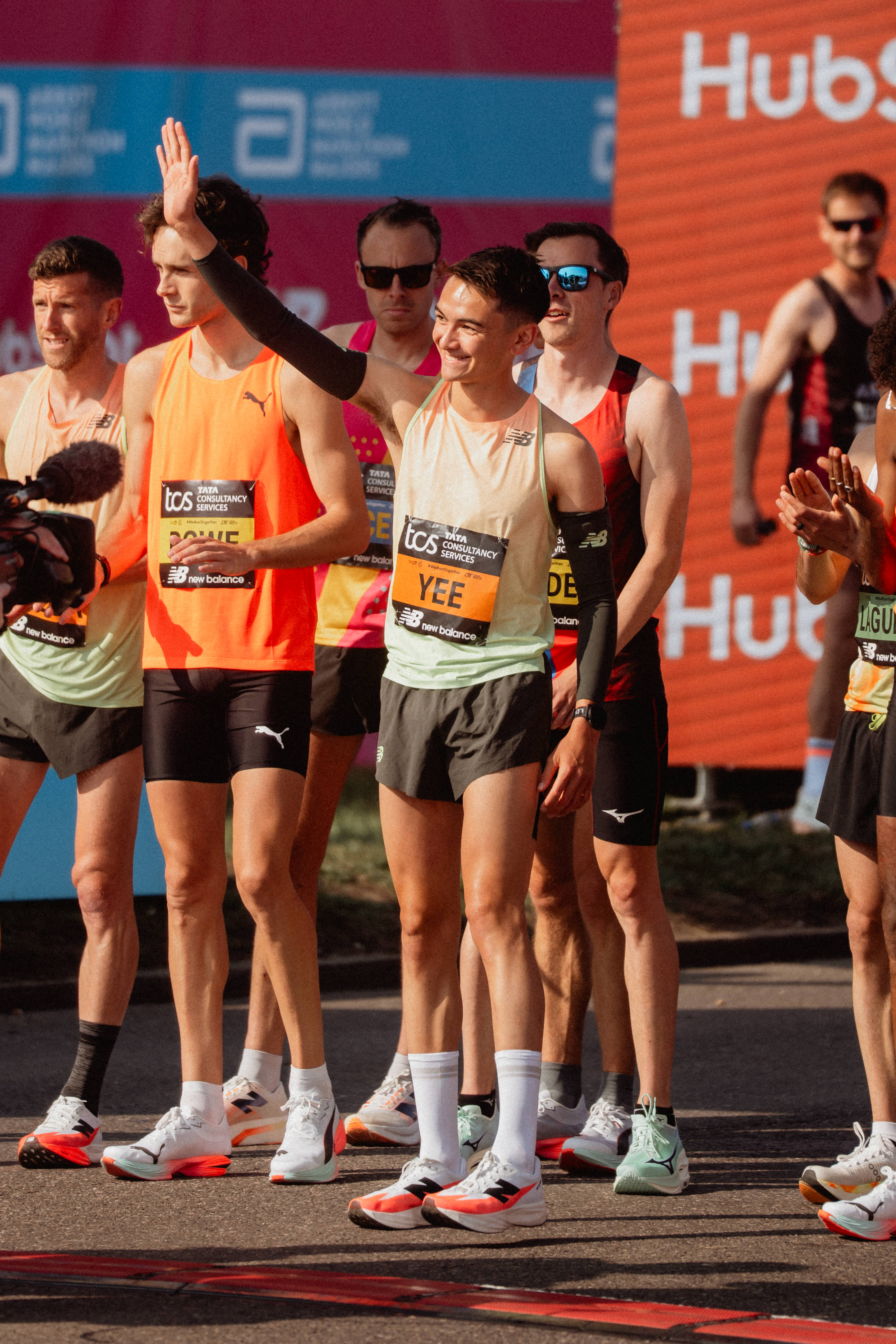

Matt: You’ve spoken about "failure" in training. How important is it to push yourself to that point where things don't go to plan?
Alex Yee: I've failed quite a few sessions, even in my Olympic block, in terms of not hitting the outcomes I wanted. But one of my strengths is being able to take a step back and learn from those things. If everything goes to plan in a training block, that’s when I start to get a little bit worried because that's when you don't learn or evolve. You learn the most when things aren't going to plan—about your character, about who you are, and how you can develop.
Matt: You’re based in Loughborough, a real hub for sports science. How has your training evolved to become so data-driven?
Alex Yee: The move to Loughborough was massive. When I was in Leeds, I had more ownership and might do a random hill rep to try and get a segment. Now, it’s a place where 'zone two means zone two.' Everything is very controlled to get the optimal training benefit. We're down to such fine margins now, using oxygen saturation monitors in the gym to ensure the right number of reps. It’s about picking the right training tools and using them effectively.
Matt: Can you give us a snapshot of a peak training week leading into the Olympics?
Alex Yee: Building up to the Olympics, a typical week would be about 28 to 31 hours of training. That would include:
- Six swims
- Five bike rides (which take up about 50% of the total volume)
- Six to seven runs
- Two gym sessions
- A dedicated run biomechanics drill session
You have to live the sport. It becomes a lifestyle, so you have to love what you're doing and be with a good group of people.
While his training is intensely structured, Yee emphasises that success isn't just about sticking to the numbers; it's about intelligent collaboration and knowing when to ask for help. He credits his strong relationship with his coach, Adam, as a key factor.
"The biggest strength between us is that we both acknowledge when we don't know something," Yee explains. "It’s incredibly hard to do as an elite athlete and coach, but we're in a sport where there are specialists in the individual disciplines who are leaps and bounds ahead of us. We can go to them and ask for help." He gives a specific example from his Paris preparation: "We needed to improve my cadence for the cobbles on the Champs-Élysées. We thought it was about high-cadence efficiency, but after asking experts, it turned out we needed to do really low-cadence sprints to produce the torque needed to be efficient at a high cadence. Our sport looks evolved because we are constantly learning from others."
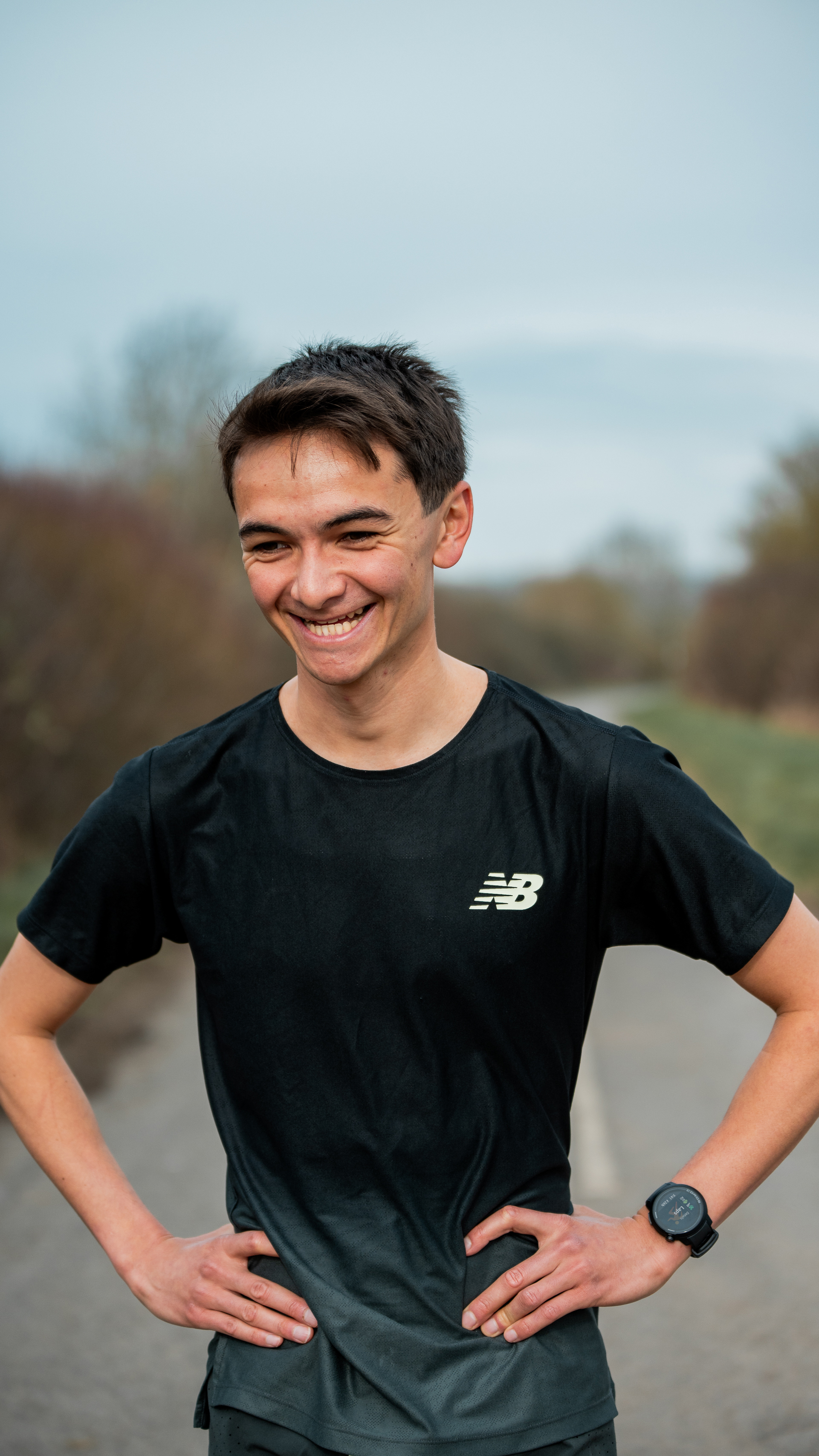

Matt: Let’s talk about that incredible race in Paris. You had a bad patch in the middle of the run where Hayden Wilde pulled away. What was going through your mind?
Alex Yee: I always race the run based on feel. At that point, I knew I had to make a decision not to go with him because I wasn't having my best day. I'd had some small nutritional issues, so I wasn't as fuelled as I’d have liked. It was about making a decision to pull back, ride out the bad patch as well as I could, and not give up on the chance that I could still win. I got a gel down me around the 4k mark, which probably kicked in towards the end. With a lap to go, I just wanted to give it everything I had and cross the line with no regrets.
Matt: The pressure at an Olympics is immense. How do you cope with that expectation?
Alex Yee: I've always tried to frame pressure as more of a form of support. People want you to do well. That's more people pushing you from behind your back, giving you that extra little push. The Olympics is the hardest race in the world to win, but it’s not always the most impressive performance that wins it. It’s about how you deal with the expectation, the emotions, and the whole build-up. It's about optimising what you can do on that one specific day.
To hear the full, in-depth conversation with Alex Yee, listen to the complete Matt Stephens Unplugged podcast episode on Apple or Spotify. Don’t forget to subscribe so that you don’t miss any episodes!
What watch does Alex Yee use?
COROS athlete Alex Yee stormed to victory in the men's triathlon in Paris, capturing Olympic gold and cementing his status as one of the sport's elite. He uses the COROS Pace 3 watch.
Learn more about Alex Yee and COROS here.
Is Alex Yee a Maurten athlete?
Yes, Alex Yee is a Maurten athlete. He is a triathlete and uses Maurten products for his training and races.
What bike does Alex Yee ride?
Alex Yee is a Trek athlete and the bike used at the Olympics was a Madone custom built via Trek Project One.
And bike computer?
As a COROS athlete, Alex Yee uses the COROS DURA Solar GPS Bike Computer.

